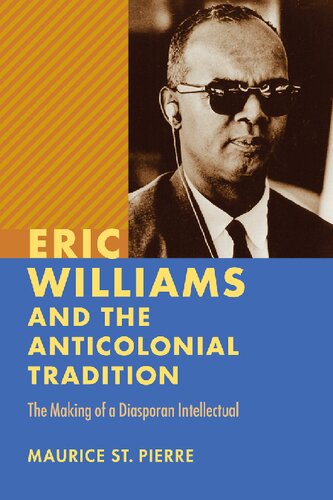

Most ebook files are in PDF format, so you can easily read them using various software such as Foxit Reader or directly on the Google Chrome browser.
Some ebook files are released by publishers in other formats such as .awz, .mobi, .epub, .fb2, etc. You may need to install specific software to read these formats on mobile/PC, such as Calibre.
Please read the tutorial at this link: https://ebookbell.com/faq
We offer FREE conversion to the popular formats you request; however, this may take some time. Therefore, right after payment, please email us, and we will try to provide the service as quickly as possible.
For some exceptional file formats or broken links (if any), please refrain from opening any disputes. Instead, email us first, and we will try to assist within a maximum of 6 hours.
EbookBell Team

4.0
26 reviewsA leader in the social movement that achieved Trinidad and Tobago’s independence from Britain in 1962, Eric Williams (1911–1981) served as its first prime minister. Although much has been written about Williams as a historian and a politician, Maurice St. Pierre is the first to offer a full-length treatment of him as an intellectual. St. Pierre focuses on Williams's role not only in challenging the colonial exploitation of Trinbagonians but also in seeking to educate and mobilize them in an effort to generate a collective identity in the struggle for independence. Drawing on extensive archival research and using a conflated theoretical framework, the author offers a portrait of Williams that shows how his experiences in Trinidad, England, and America radicalized him and how his relationships with other Caribbean intellectuals―along with Aimé Césaire in Martinique, Juan Bosch in the Dominican Republic, George Lamming of Barbados, and Frantz Fanon from Martinique―enabled him to seize opportunities for social change and make a significant contribution to Caribbean epistemology.